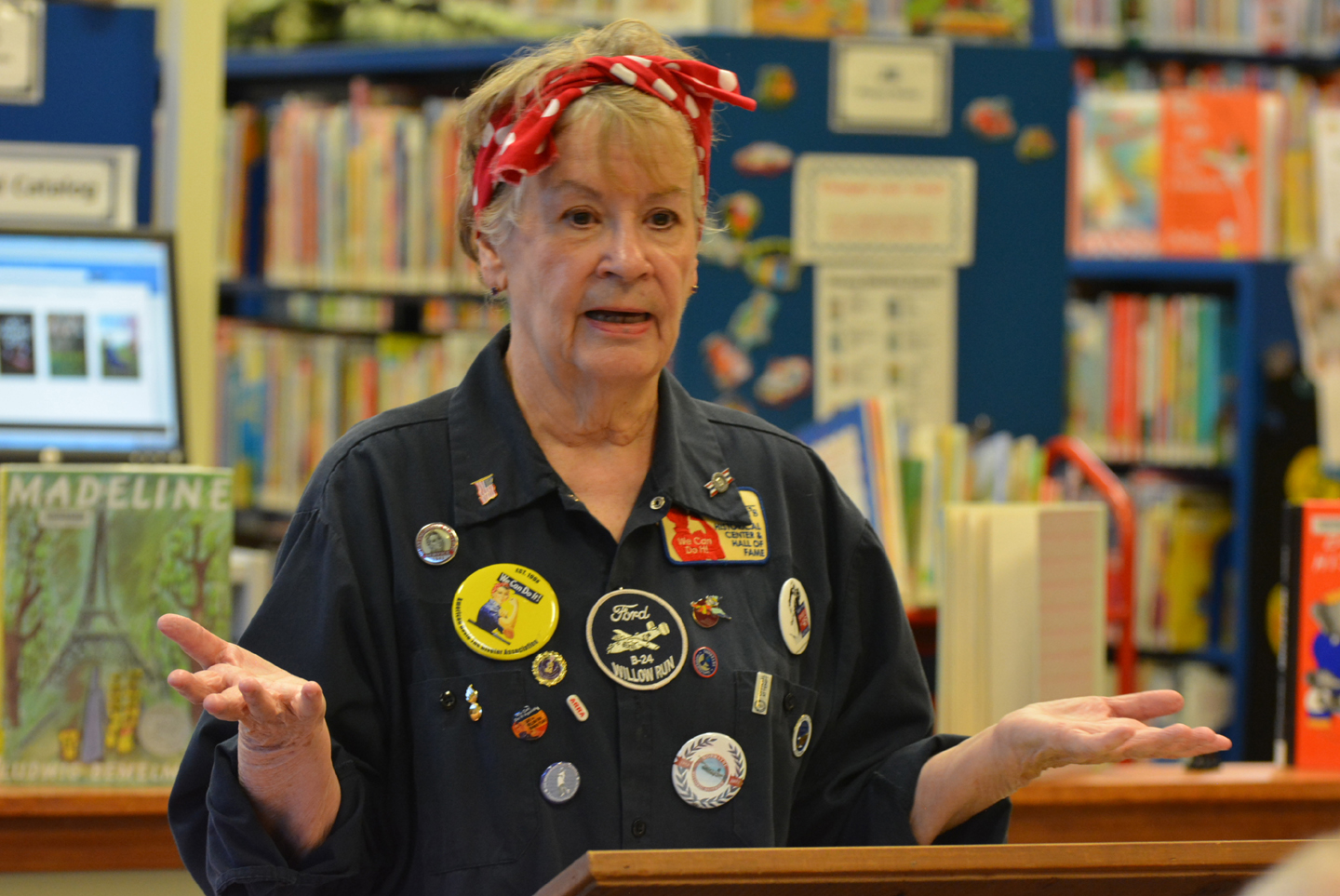
When people think of World War II, they often picture men storming foreign beaches with rifles in hand, driving tanks across smoke-filled battlefields and dropping bombs from airplanes.
But someone back in the United States had to make those instruments of war and it most likely was a woman.
Last week, Donnaleen Lanktree, president of the American Rosie the Riveter Association (ARRA), visited the Addison Township Public Library to share some stories from women who worked on the homefront during WWII to help secure victory over the Axis Powers in Europe and the Pacific.
Prior to the war, “American women had been expected to stay home, raise their children and defer to their husbands,” Lanktree said. “Those who did work outside the home were largely confined” to what were considered female jobs, such as teachers and secretaries.
But that changed when the forces of Imperial Japan attacked Pearl Harbor, Hawaii on Dec. 7, 1941 and the U.S. entered WWII.
“When the men marched off to war,” Lanktree said the “acute” shortage of bodies to fill the jobs they left behind, “forced the culture and the government to suspend their gender discrimination and actively recruit women in the workplace.”
Rosie the Riveter was born.
Featured prominently in songs, artwork, propaganda posters and promotional films, the fictional Rosie the Riveter character represented and inspired American working women during WWII.
Reading a poem entitled “They were Rosies,” Lanktree explained to the audience that these women weren’t just riveters. All across the U.S., from teenagers to senior citizens, they worked as sanders, welders, crane operators, bus drivers, uniform and bullet makers, parachute folders, clerical workers, shipyard workers, assembly-line workers, Red Cross workers and “so much more.”
“They came together with one purpose, to help win the war,” Lanktree said.
They made 80,000 landing craft, 100,000 tanks, 300,000 aircraft, 15 million guns and 41 billion rounds of ammunition.
Without this “big army of new women workers,” the war industry would have been unable to produce so much, according to Lanktree.
Using their own words, Lanktree shared a number of stories from real Rosies. They talked about spending their first paychecks, working conditions in factories and shipyards, waiting for loved ones serving overseas, collecting items for scrap drives, the rationing of food, like meat and sugar, on the homefront and celebrating the end of the war.
Lanktree’s own mother was a Rosie. She worked in a factory riveting the wings on airplanes for the U.S. Navy, while her husband served with the U.S. Army in Europe.
Founded on Dec. 7, 1998 by Dr. Frances Carter, of Birmingham, Alabama, the ARRA is dedicated to recognizing and preserving the history and legacy of working women, including volunteers, during WWII.
For more information about the ARRA, please visit rosietheriveter.net.

Leave a Reply